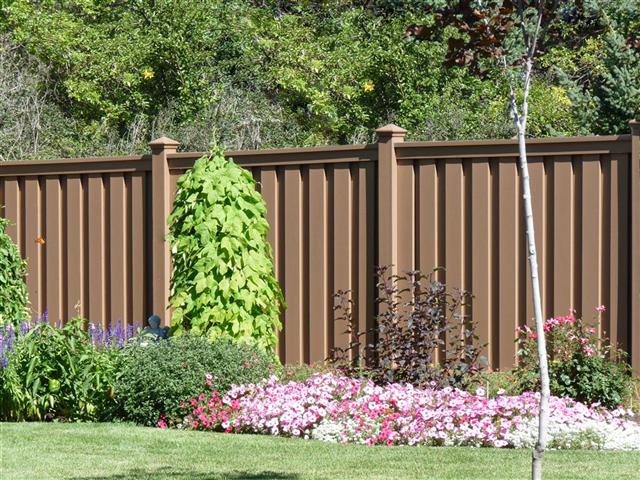Featured

When installing a fence, choosing the ideal product is crucial to stabilizing capability, aesthetic appeals, and spending plan. Timber, vinyl, and light weight aluminum are among the most typically selected secure fencing products, each with its strengths and disadvantages. This guide explores the pros and cons of these alternatives to assist you make an educated choice.

Wood Fencing. Pros:. Natural Appeal: Timber's ageless charm can enhance any residential or commercial property with its cozy and traditional appearance. Customizable: You can paint, stain, or sculpt timber to fit your style preferences. Economical: Wood secure fencing is initially extra economical compared to a few other materials. Eco-friendly: As an eco-friendly source, wood is eco-friendly and typically thought about environment-friendly. Disadvantages:. Maintenance-Intensive: Routine securing, painting, or discoloration is needed to stop damages from weather condition and parasites. Prone to Decay: Without appropriate care, wood can rot, warp, or split with time. Much shorter Lifespan: Typically, wood fencings last 10-15 years, depending upon the kind of timber and upkeep. Timber is a great option for those who value aesthetic appeals and agree to buy normal maintenance to preserve its appearance and longevity.
Vinyl Secure Fencing. Pros:. Low Maintenance: Vinyl needs minimal care-- simply occasional cleaning with soap and water. Weather Resistant: It doesn't warp, rot, or catch insect damages, making it very durable in various climates. Longevity: Vinyl fences can last 20-30 years with little to no repairs. Style Variety: Available in a variety of colors, styles, and structures, including wood-like looks. Cons:. Greater First Cost: Plastic fencings are more expensive upfront compared to timber. Susceptability to Cold: In exceptionally chilly climate, plastic can end up being fragile and prone to splitting. Limited Repair Options: Matching replacement panels can be testing if damage occurs. Plastic fence is optimal for home owners trying to find a resilient, low-maintenance option that uses modern-day adaptability.

Aluminum Fence. Pros:. Rust-Proof: Light weight aluminum withstands deterioration, making it an excellent choice for humid or damp atmospheres. Resilient: In spite of being lightweight, light weight aluminum is strong and can withstand harsh weather. Low Maintenance: It needs minimal upkeep, typically just occasional cleansing. Long Life-span: Aluminum fencings can last years without considerable damage. Elegant Style: Commonly utilized for ornamental purposes, light weight aluminum fencing includes a smooth, sophisticated want to properties. Disadvantages:. High First Investment: Light weight aluminum fences are amongst the costlier choices on the market. Less Personal privacy: The open styles common with light weight aluminum secure fencing don't give much privacy. Susceptible to Damages: While long lasting, aluminum can dent if hit with sufficient force. Light weight aluminum is an exceptional choice for house owners focusing on appearances and longevity without requiring much upkeep.
Making Your Choice. When determining in between timber, aluminum, or vinyl fence, consider your concerns:
Timber matches those that value an all-natural look and do not mind putting in upkeep initiative. Vinyl is the best option for those looking for a low-maintenance, weather-resistant service. Light weight aluminum supplies streamlined style and durable resilience but may do not have personal privacy. By meticulously evaluating these materials' functions, you can select a fencing that enhances your residential property while meeting your visual and useful demands.
Latest Posts
Inexpensive Fence Solutions with Montana Fencing Funding
Published May 09, 25
1 min read
Looking for the Premier Service Center Close By? Experience Superior Care at Car-X St. Louis
Published May 09, 25
1 min read
Full Circle Strategic Marketing's Comprehensive Strategy to Market Solutions
Published May 09, 25
1 min read
More
Latest Posts
Inexpensive Fence Solutions with Montana Fencing Funding
Published May 09, 25
1 min read
Looking for the Premier Service Center Close By? Experience Superior Care at Car-X St. Louis
Published May 09, 25
1 min read
Full Circle Strategic Marketing's Comprehensive Strategy to Market Solutions
Published May 09, 25
1 min read